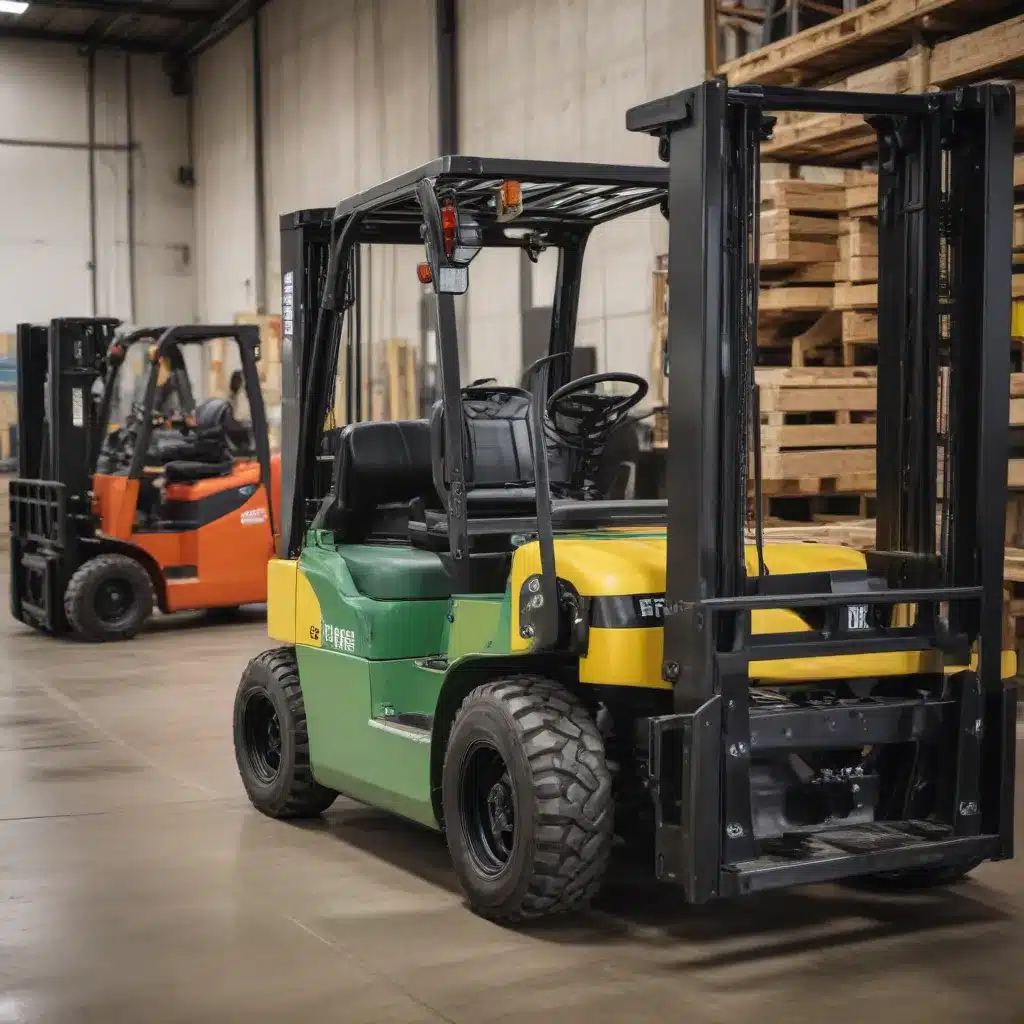
As a seasoned industry expert in forklifts, warehousing, and logistics, I’ve witnessed firsthand the transformative power of investing in the skill development of forklift fleet operators. In this comprehensive article, I’ll explore the critical importance of implementing robust training programs, fostering a culture of safety, and embracing innovative technologies to optimize your forklift fleet operations.
The Changing Landscape of Forklift Fleet Management
The logistics and warehousing industries are constantly evolving, driven by technological advancements, shifting consumer demands, and the need for greater efficiency. Navigating this dynamic landscape requires a new breed of forklift fleet operators – individuals who not only possess technical expertise but also exhibit a deep understanding of safety protocols, maintenance best practices, and data-driven decision-making.
Embracing Technological Innovations
One of the key drivers of change in the forklift industry is the rapid adoption of technological innovations. From autonomous guided vehicles (AGVs) to smart sensors and telematics, the landscape of forklift operations is being transformed. By embracing these advancements, fleet operators can enhance productivity, improve safety, and optimize maintenance schedules.
Example: Skillbuilders, an interactive resource developed in partnership with Edison Electric Institute, provides a realistic view of the work performed in electric energy jobs, including forklift operations, and offers valuable preparation tools to help operators succeed.
Cultivating a Culture of Safety
Forklift safety should be the cornerstone of any well-managed fleet operation. By instilling a culture of safety, fleet operators can empower their teams to prioritize best practices, identify and mitigate risks, and foster a work environment that values the well-being of every individual.
Example: The Workforce Development Annual Report 2023 from the City of Philadelphia highlights the importance of comprehensive training programs that focus on both technical skills and safety awareness, ensuring that workers are equipped to navigate the unique challenges of their roles.
Investing in Skill-Building Initiatives
To thrive in this evolving landscape, forklift fleet operators must invest in comprehensive skill-building initiatives that address the diverse needs of their workforce. These initiatives should encompass both technical and safety-focused training, as well as opportunities for continuous learning and professional development.
Comprehensive Technical Training
Forklift operations require a deep understanding of equipment functionality, maintenance procedures, and operational best practices. By providing comprehensive technical training, fleet operators can empower their teams to handle a wide range of forklift models, troubleshoot issues efficiently, and optimize equipment performance.
Example: The AFWERX program, a United States Air Force initiative, offers robust technical training programs that cover the latest advancements in forklift technology, ensuring that participants are equipped with the knowledge and skills to excel in their roles.
Safety-Focused Training and Certification
Forklift safety is paramount, and fleet operators must ensure that their teams are well-versed in safety protocols, hazard identification, and emergency response procedures. Implementing mandatory training and certification programs can help reinforce a culture of safety and empower operators to make informed decisions in high-risk situations.
Example: The SOI CPRG Implementation Grant from the Illinois Environmental Protection Agency emphasizes the importance of safety-focused training, providing funding for initiatives that educate workers on equipment operation, maintenance, and risk mitigation strategies.
Continuous Learning and Professional Development
In an ever-evolving industry, forklift fleet operators must foster a culture of continuous learning and professional development. By offering ongoing training opportunities, mentorship programs, and career advancement pathways, fleet operators can attract and retain top talent, ensuring that their teams are equipped to handle the challenges of the future.
Example: American Electric Power (AEP) provides a wide range of professional development resources, including test preparation tools, interactive learning platforms, and opportunities to introduce oneself to the Talent Acquisition Team for personalized job recommendations.
Optimizing Fleet Performance Through Data-Driven Insights
Embracing data-driven insights is crucial for forklift fleet operators looking to maximize efficiency, reduce operational costs, and enhance safety. By leveraging advanced analytics and telematics, fleet managers can make informed decisions, identify areas for improvement, and optimize their operations.
Leveraging Telematics and Predictive Maintenance
Forklift telematics systems provide a wealth of data on equipment usage, maintenance needs, and operator behavior. By analyzing this information, fleet operators can implement predictive maintenance strategies, reduce downtime, and ensure that their equipment remains in peak condition.
Example: The AFWERX program highlights the importance of leveraging data-driven insights, including the use of telematics and predictive maintenance, to enhance the performance and reliability of forklift fleets.
Data-Driven Decision-Making
Data-driven decision-making empowers forklift fleet operators to identify areas for improvement, allocate resources more effectively, and make informed choices that drive operational excellence. By implementing robust data analytics and reporting tools, fleet managers can gain a comprehensive understanding of their operations and make data-backed decisions.
Example: The Workforce Development Annual Report 2023 from the City of Philadelphia emphasizes the value of leveraging data-driven insights to inform workforce development strategies, ensuring that training programs and skill-building initiatives are tailored to the specific needs of the industry.
Conclusion
Investing in the skill-building initiatives of forklift fleet operators is a strategic imperative in the evolving logistics and warehousing landscape. By embracing technological innovations, cultivating a culture of safety, and implementing comprehensive training programs, fleet operators can empower their teams to excel, drive operational efficiency, and contribute to the overall success of their organizations.
Remember, the Forklift Reviews blog is dedicated to providing practical tips, in-depth insights, and industry-leading expertise to help you navigate the world of forklift operations. As a seasoned industry expert, I’m here to help you navigate the challenges and opportunities that lie ahead.

